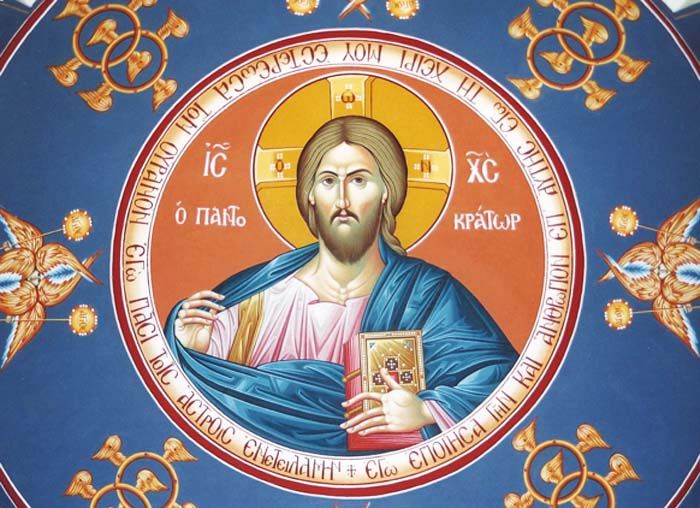
The Lord had warned His Disciples, "In the world you will have tribulation; but be of good cheer, I have overcome the world” (John 16:33). The Apostle Paul also refers specifically to sorrows, warning Christians not to be overwhelmed by this: "We must through many tribulations enter the kingdom of God" (Acts 14:22). We know from Church History and the Lives of the Saints that there were people who became Saints through their patient endurance of life’s hardships, coupled with a fervent faith and love in Christ. In fact, the greater sorrows they faced, the more glory they received, like the Great Martyrs.
For those who have strong faith, patience and devotion to Christ, these trials are a challenging opportunity to reach new spiritual heights. For the weak in faith, they become reasons for scandal. Some even lose the little spark of faith that had remained in their hearts and fall into the black pit of despair. They even go so far as to blame our Benevolent Lord for the injustice, indifference or abandonment they feel. But the Church encourages its valiant spiritual fighters to rise up, continuing the struggle against sorrows until the very end, receiving their crowns. The rest of us are urged to pray to be relieved from these tragedies we often face: "For our deliverance from all affliction, wrath, danger, and necessity, let us pray to the Lord. ..."
It is truly moving, when we look at how the Saints lived, accepting these trials as blessings from God and the chance for more struggle. At the same time, they prayed to God for everyone else, asking that we be freed from our burdens. St. Paisios is a modern example of this. We are amazed by his attitude towards suffering, in that he was afflicted for many years with painful diseases. But like the great saints, he endured them all with patience. He viewed severe pain as a visitation from God, and a spiritual exercise to grow in faith. The strange thing about this for us, is that he did not ask God to relieve him of the pain and sickness, because he felt that they helped him. In fact, he once said: My illnesses benefited me more than a lifetime of fasts, vigils and spiritual struggles on Mount Athos. But for others who were suffering and asked for his help, he prayed for their relief, which God heard and miracles happened. In other words, St. Paisios followed the spiritual direction given by all the previous Saints: To pray to God to relieve us of our sorrows. Because of the threat of grief threatening to send us into terrible despair, it is better to give up reaching for these crowns of endurance, and instead humbly recognize our weakness, turning to the mercy of the Lord.
When we pray for the deliverence "from all wrath", we mean mainly the divine wrath that is directed towards those who not only violate the will of God, but disobey the law of God, distorting the truth while remaining unrepentant due to their total egoism. Such people are indeed enemies of God. The Apostle Paul writes of a group of such people: "forbidding us to speak to the Gentiles that they may be saved, so as always to fill up the measure of their sins; but wrath has come upon them to the uttermost." (1 Thessalonians 2:16). A typical example of the immediate appearance of divine wrath in a person who considered themselves similar to God is King Herod. Herod, as the Acts of the Apostles writes, was in dispute with the inhabitants of Tyre and Sidon, so on a set day Herod, arrayed in royal apparel, sat on his throne and gave an oration to them. And the people kept shouting, “The voice of a god and not of a man!” Then immediately an angel of the Lord struck him, because he did not give glory to God. And he was eaten by worms and died."(Acts 12:20-23). Let us be watchful and pray fervently that our attitude towards God is the right one, in order to receive His favor and infinite mercy.
To pray for the prevention and avoidance of every danger and deprivation, is the complementary exhortation of the Deacon: "For our deliverence from all… danger, and necessity, let us pray to the Lord."
With every day that comes we encounter new dangers to our lives and our salvation. We are constantly hearing about disasters, wars, accidents, crimes (even domestic ones), the mutations of deadly viruses, and so many other sad things that are happening in the world. This knowledge leads us to uncertainty, anxiety and stress, making us feel insecure in our lives (including in our homes). That is why keeping our constant focus on Almighty God, the only one who can save us from all of this (see Hebrews 5:7) is the right answer to all of this.
Finally, in asking "for the deliverence from all... necessity”, the believer asks:
- To rid ourselves of the false "necessities" that are dictated by selfish consumerist society.
- To have authentic needs fulfilled for the dignified living of a Christian and their family.
From all these difficult circumstances, spiritual and material, we ask to be delivered. Amen.





